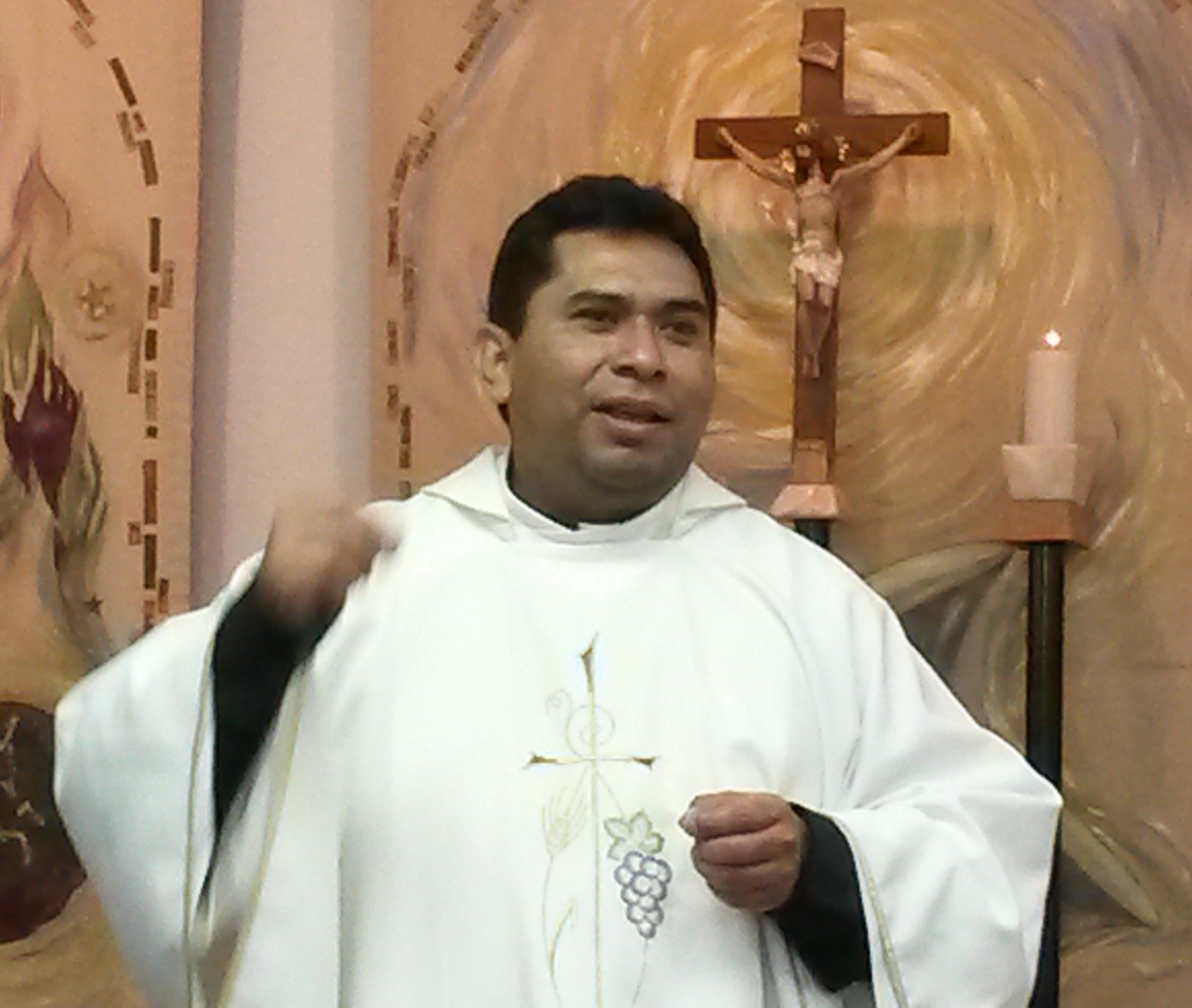EUCHARIST: FRATERNAL BOND
By our Pastor, Fr. Carmelo Jiménez
We continue reading the Gospel of John, chapter 6, which again leads us to reflect on the Eucharist. Today we reflect on the Eucharist as a fraternal bond and family union.
The first reading starts by saying: “Wisdom has built her house, she has set up her seven columns; she has dressed her meat, mixed her wine, yes, she has spread her table” (Prv 9: 1-2), and leads us to reflect on hospitality. There are three important elements of hospitality, the first is “the house”. We constantly hear “my house is your house”, that’s popular sentence, it was true for the ancient culture and ours as well. We want to make our visitors feel welcome and at home. The second element is: “she has dressed her meat”. When people visit us, the first thing we think of is in the food: are we going to a restaurant or prepare it at home? What shall we serve? And it’s part of eagerly awaiting those who come to visit us. And thirdly: “mixed her wine, she has spread her table”. In almost all cultures, wine is a sign of joy. In the Hebrew environment even today, wine is served to celebrate both the family and the national events.
An important element of the first reading is reflected in the gospel: “To the one who lacks understanding, she says” (Prov 9: 4) and gospel says: “The Jews quarreled among themselves, saying, ‘How can this man give us his flesh to eat?’” (Jn 6: 52). I remind you that Chapter 6 of the Gospel of John begins with two signs: the multiplication of the loaves and fishes and Jesus walking on water. Can human reason understand how Jesus did the multiplication and fed over 5,000 people? Can anyone’s mind grasp how Jesus could walk on water? No, no reasoning can explain the two large signs. And no human reasoning can understand the mystery of the Eucharist, but the only way we can understand it is by love. We know that he wanted to conceal himself in the bread and wine which are staple foods for humanity and strongly express the communion and solidarity among the Hebrews.
“For my flesh is true food, and my blood is true drink. Whoever eats my flesh and drinks my blood remains in me and I in him. Just as the living Father sent me and I have life because of the Father, so also the one who feeds on me will have life because of me.” (Jn 6:56-57) These affirmations of Jesus can be understood better if we remember what it would have meant for the Hebrews to eat of the same bread and drink of the same cup. For them to eat a bite from the same bread established an intense life stream. The process was simple: bread is converted in the body of the one who eats it into blood; if they eat from the same bread, that blood is identical between the two who ate the same bread. And since blood is the expression of life, they have profoundly and truly shared the same life. That is why Jesus says: “Whoever eats my flesh and drinks my blood remains in me and I in him.”
After this reflection we can conclude that the Eucharist unites us to Jesus in the most intimate way, in life; and not only in our earthly life, but also in the eternal life. And if we share this same bread and this same chalice, then we too are brothers. And so the Eucharist is the fraternal and familial union. May these bonds that are created through the Eucharist strengthen the Church, strengthen our community and also help us to remain united in Jesus Christ. Amen.
